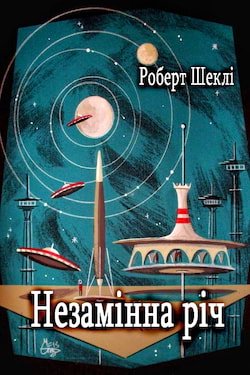Interesting video, thanks! I'm understanding almost all of it (I've listened up to 10:00). I had to relisten twice to catch what the older fellow having breakfast was saying around 8:30, but I'm pretty sure it's دودھ کی نہریں ہوں گی شائد اور میٹھے پھل ہوں گے. And I wasn't 100% on one word of what his grandson is saying at 8:18 or so: آگے جا کر سارے (عمر؟) یہی پینا پڑے گا, but I think it is indeed 'umr.
I do find this more enjoyable than the modern Pakistani dramas I've seen so far (just bits and bobs of Jackson Heights and دیارِ دل, and I think one other one that had a lot of Enlgish dialogue in it, to be fair), so maybe I'll watch more of it if I ever get sick of dubbed material.
german2k01 wrote:I picked up most of the common words used in native conversations by watching this TV show regularly.
Is Urdu not your native language?
AnkiI've been thinking about what kind of use, if any, of Anki I should have going forward. My Anki decks were bloated, I had too many decks, and my cards were too complicated (sentences, definitions, etc.), but that doesn't mean it's not a good tool for certain purposes.
I've already decided I won't use it for any Germanic, Romance, Slavic or Indo-Aryan languages, or Hungarian, or even Turkish if I decide to get back into that at some point. There I will use Quizlet if I feel the need to study vocabulary.
Out of the "harder" languages I've studied, which ones do I want to prioritise and get to a more comfortable reading level, which is what I find Anki is best for? Here are my criteria:
- took classes at university (leaves: Arabic, Hebrew, Basque, Finnish, Greek)
- can already read news with a popup dictionary without it frying my brain after five sentences (this disqualifies Finnish and Greek)
So I've deleted all my decks in Anki, removed all the add-ons and presets and so on. And I'm left with this.

My
goals are as follows:
Arabic: 6 new/day, +15 minute semiextensive reading sessions interspersed throughout the week where I
don't add cards
Hebrew: 3 new/day
Basque: 2 new/day
All my cards are English > target* (recall) with single words or short collocations (ما يشبه, تمثل المصالح, على خلفية, قانون مكافحة التضخم, احتواء الموقف) and have audio on the back.
I am prioritising Arabic over the other two because 1) hopefully it'll bleed over into reinforcing my Urdu to a certain extent, 2) it's probably the most challenging in terms of the amount of vocabulary I need to learn, 3) it's the "one that got away" that I've been interested in for ages but haven't made that much measurable progress in, 4) could potentially be useful in my line of work at some point, 5) has native speakers where I live (the diglossia makes this less relevant, but it's still a minor factor).
I am tentatively committing to this regimen for 12 months (12/2023); I say
tentatively because I am allowed to reconsider after 6 months (5/2023), but no earlier.
I am allowed to dabble in other languages, like say Albanian or Persian, but there I have to use print pedagogical materials (i.e. bilingual textbooks, grammars) where I don't have to make flashcards or look at a screen.
*Spanish > target in the case of Basque. I used to have both English/Basque and Spanish/Basque cards, or even have both translations, but that's too confusing.
EDIT: Also, I'm going to drop Chinese for the next several years at least. It was fun dabbling while it lasted but I have more than enough on my plate with European, Indian and Middle Eastern languages, and I'd prefer to more deeply explore those language families and civilisational groups than add anything new. Realistically if I wanted to make a real push to get my Mandarin into the B band, I'd have to drop all three of my "Anki languages" and cut back on languages like French and Hungarian. I also reckon I'd more enjoy having Arabic in the B band than Mandarin, as it'd be easier to maintain and use given my knowledge of Urdu.



